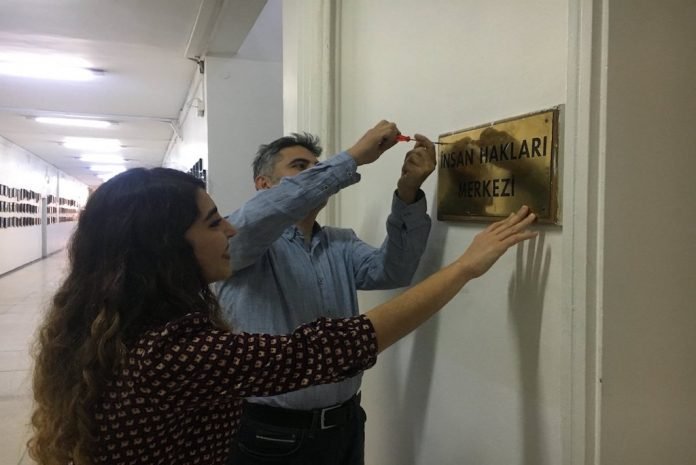Professor Kerem Altıparmak, a renowned Turkish human rights lawyer and academic, has resigned from Ankara University, saying it can no longer be called a university, according to a report by online news outlet Ahval on Tuesday.
Altıparmak, known for fighting freedom of expression cases and his numerous reports on human rights, last year complained he had been refused permission on five occasions to leave the country to attend human rights conferences.
The university in 2017 also shut down the Human Rights Centre of Ankara University’s Department of Political Science (SBF), which was established in 1978. Altıparmak was one of the academics working at the center.
“The Human Rights Centre of the SBF, the pride of Turkish academia, which has served for 40 years and which I joined 21 years ago, was shut down. We took down the plaque with our own hands. Of course, our struggle for human rights has not ended. We will keep on defending what is right,” Altıparmak said on Twitter.
But on Monday, Altıparmak announced his decision to resign from the university and wrote a farewell letter explaining the reasons.
“Let me first explain that when I started working as an academic, I dreamed of leaving its doors one day as a retiree, just like many of my friends who were sacked from their jobs over the last two years,” Altıparmak said. “From this perspective, it is obvious that my resignation is not something like ‘I have found a better job, and I am leaving’, or in other words, it is not a voluntary departure,” he added.
Altıparmak said it was also not fair to say that he had resigned because he faced pressure, as there were many who were under more severe pressure than him and that he could have stayed if he had wanted.
“I am leaving not because I found a better job, but because the place I am working has become something too different from the place I had hoped to retire from, a place that can no longer be called a university,” he said.
“Under the circumstances, resisting also loses its meaning. It would be meaningful to resist and to continue for the sake of the university and academia, but what is left has nothing to do with those two.”
The Turkish government has sacked thousands of academics in the last two years, including those accused of being part of the Gülen movement and hundreds who signed a 2015 petition calling for a peaceful end to the Kurdish conflict.
Human Rights Watch said in March the dismissals, as well as attempts to interfere with the academics’ work, led to censorship and undermined academic freedom.
The crackdown on critical thinking in Turkey with an unprecedented witch hunt targeting teachers, academics and other professionals in the education sector has dealt a huge blow to free thought in Turkey, according to a report released by SCF.
The government of President Erdoğan has jailed some 20,000 instructors and arbitrarily fired 34,185 public school teachers and 5,719 academics including professors from state universities within the last two years alone. They were branded as “terrorists” and “coup plotters” without any effective administrative or judicial probe and as such marked for life.
The government shut down 1,069 privately run schools, most of which were the nation’s best performing science schools and were affiliated with the Gülen movement, and closed down 15 universities that were run by privately held foundations. As a result, 2,465 academics and 54,350 teachers instantly became unemployed. With the support staff who worked in these schools, the total number of people who lost their jobs reached 65,214. The government also canceled the licenses of 22,474 teachers, making it impossible for them to continue working as teachers in other institutions.
In total, 96,719 teachers and academics were purged from Turkey’s public and private educational institutions. This number does not include the support staff that was hired to run schools and universities in administrative and other capacities.
Most of the shuttered institutions were transformed into religious schools that are designed to raise a new generation of Islamist supporters for Erdoğan’s AKP.
When all the closed institutions are taken into account, the total loss in value including fixed property and land is around $100 billion, one source estimates. The crackdown included foreign students who came to Turkey for study or Turkish students who were sent abroad on government scholarships.
















